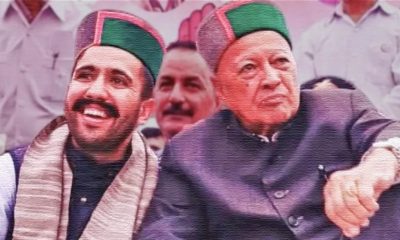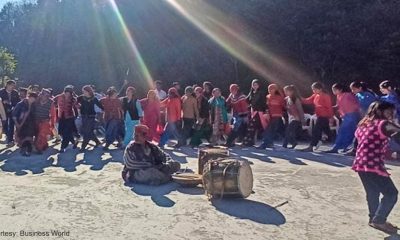Law & Justice
The Opaqueness of the Collegium Orders and Resignation of a Competent Lady Judge
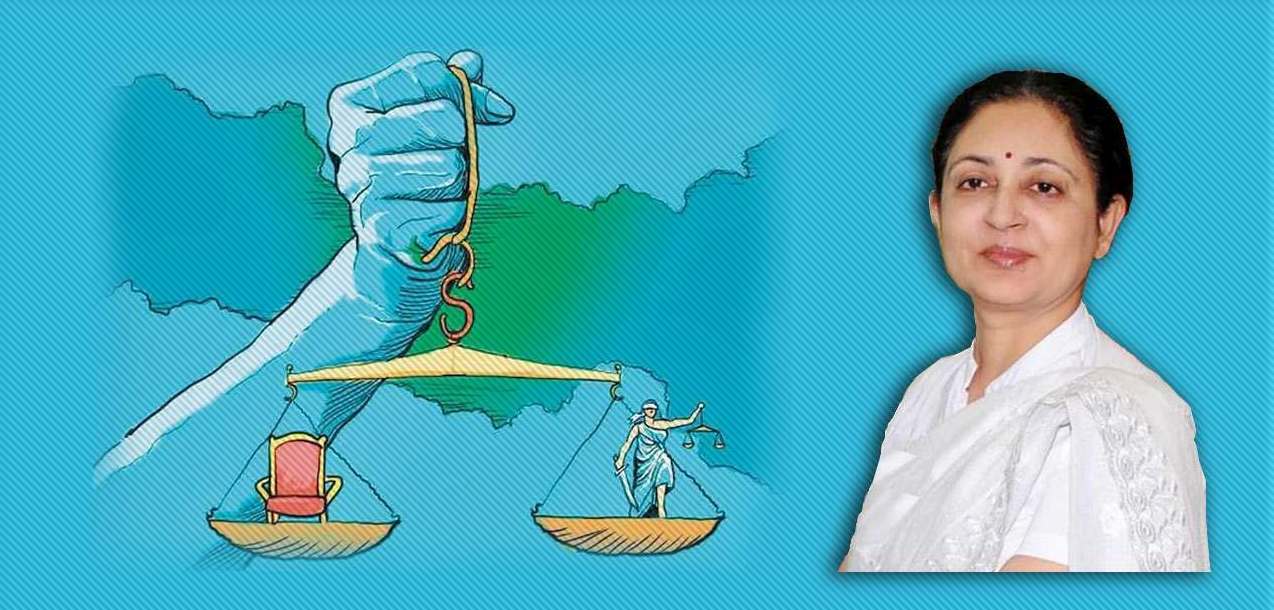
Shimla-Justice of Madras High Court “Justice Vijaya Kamlesh Tahilramani”, Days after the Supreme Court Collegium declined her request for reconsideration of transfer to Meghalaya High Court, has preferred to resign rather than to succumb to the order of the collegium.
Justice Tahilramani is one of the senior-most judges and one of the two women High Court Chief Justices. She was the third woman to assume the charge of Chief Justice at the Madras High Court.
The Collegium had ordered on September 3 that the transfer was recommended in the interests of “better administration of justice”. No other reason was provided in the transfer order.
The Madras High Court is one of the oldest and the fourth largest in the country, whereas the Meghalaya High Court is among the smallest. The transfer was being seen as a punishment by many as it is rarely seen that a serving Chief Justice of a big High Court is given a charge of a smaller High Court. From being the Chief Justice of a court that has a sanctioned strength of 75 judges, Justice Tahilramani was chosen to head a High Court with just three judges.
Instead of accepting her obviously humiliating transfer, Justice Tahilramani has chosen to resign.
As the acting Chief Justice of the Bombay High Court, Justice Thaliramani in May 2017 upheld the conviction of 11 people for life imprisonment in the “Bilkis Bano gang-rape case” (March 3 in 2002, during the riots, 14 people – including four women and four children – were killed while 19-year-old Bilkis Yakub Rasool who was 5 months pregnant was gang-raped in a moving truck and left to die. But she survived the brutality and fought for justice). As a judge of the Bombay High Court J. Thilaramani had ruled that 11 of the accused deserved life sentence.
In another important case as a judge of Bombay High Court, Justice Thaliramani laid down guidelines regarding pregnant women prisoners.
She rejected the plea of 1993 serial blasts convict to be released on parole to attend to his ailing wife in one of her last judgements for the Bombay High Court.
“Consideration of sympathy for him cannot be permitted to overshadow the consideration regarding the security of the society,”
the division bench of the acting Chief Justice and another judge had observed.
Is “Better Administration of Justice “a “Self-Explanatory Reason”?- The Opaque and Arbitrary Decisions by the Collegium
If the judiciary has to be a bulwark for the protection of the “rights of the individual” and mete out even-handed justice without fear and favour” then it should be independent.
Exercise of the judicial function is one which requires more than any other work a proper balance of mind and an undisturbed and peaceful life. Administration of justice cannot properly be done by a disgruntled judge. If transfer hangs over his head as a Damocles’ sword, the balance of justice slips out of his hand. An immediate and unnoticed transfer may cause so great inconveniences that it may compel him to quit rather than comply with the transfer order.
In the judges’ case, the Supreme Court held that the consent of the judge was not necessary for his transfer from one High Court to another. According to the Court, there are three safeguards against arbitrariness in the use of the President’s power to transfer judges under Article 222. They are:
- There must be full and effective consultation with the
Chief Justice of India. - The power of transfer can be exercised in public interest only and not by way of punishment.
- Judicial review of the decision of the President to
transfer a judge.
However, do these safeguards suffice to preserve the independence of the judiciary, one of the cardinal faith of the Constitution? Judges, unlike government servants, judges hold an office under the Constitution and there is no master-servant relationship between the government and the judge. A close study of Sankal Chand’s case and the Judges case would reveal that the Supreme Court has miserably failed to bring out the clear distinction between the transfers by punishment and transfers in public interest or in the present matter, as the order put it, “for better administration of justice“. These expressions are not capable of any precise definition and in a given set of circumstances may be applied differently by different people. In many cases, it would not be possible to rule out some element of a penal character. The present procedure, as it stands, has instead of limiting the scope of transfers only enhanced its scope by giving a very elastic definition of public interest and ‘better administration of justice”.
The great Mr. Palkhiwala, after examining the Judges’ case had rightly pointed out that the dichotomy was not between transfer in public interest and “for better administration of justice” and transfer by punishment, but the dichotomy was between transfer in’ public interest’ and transfers for ‘extraneous considerations’. According to him, the object of the transfer and not the result, or effect, of the transfer is the decisive factor. the object of the purpose needs to be clearly spelt out in such orders and this cannot be done in a slip-shod manner.
Justice Bhagwati in Sankal Chand’s case and reiterated in the Judges case that the “transfer is made consensual” was the only effective safeguard for a judge against arbitrary transfer and only if such an interpretation is accepted, the noble concept of independence of the judiciary can be preserved. This view is shared by many eminent jurists, judges, lawyers etc. The Lord Chief Justice of England, Hon. Lord Lane, speaking on “Standards of Judicial Independence” expressed the view that a judge ought not to be liable to be transferred from one High Court to another without necessarily seeking his consent. Justice H. R. Khanna, a former judge of the Supreme Court, regretted that the Law Commission’s recommendation that no judge should be transferred without his consent unless a panel consisting of the Chief Justice of India and his four seniormost colleagues find cause for such a course has fallen into deaf ears.
The resignation of the Hon’ble Justice Vijaya Kamlesh Tahilramani is another dark chapter in the matters of transfers of the judges of the Superior Courts. The Hon’ble judge not only ‘did not give her consent‘ but also ‘opposed her transfer by writing a letter to the collegium’. Better administration of justice can be achieved by providing detailed reasons to the Hon’ble judge and to the people of India. Transfers without reason can instil fear in the minds of the judges, the first casualty of which would obviously be the justice itself.
The constitutional provision (Article 222) on the transfer of judges has a direct and proximate connection with the independence of the judiciary. This provision, like many other constitutional provision, can be made use of for achieving many useful purposes as well as evil purposes until a clear and reasonable interpretation is given to the Article keeping in view the principle of “independence of the judiciary” in mind. Its abuse will have many dangerous effects on the judiciary and its independence. If the judiciary loses its independence and becomes subservient, the net result would be that the Constitution will lose its prominence. Justice Khanna has aptly put it like this:
“Once the independence of the judiciary is undermined and the seats of Justice came to be occupied by men with pliable conscience’ and subservient to the political wing of the State, the first casualty would necessarily be the supremacy of the Constitution, for it, would be open to every branch of the State to ride roughshod over the provisions of the Constitution.”
HW Community
Response of Judiciary to India’s Migrant Crisis During Lockdown- Part-II
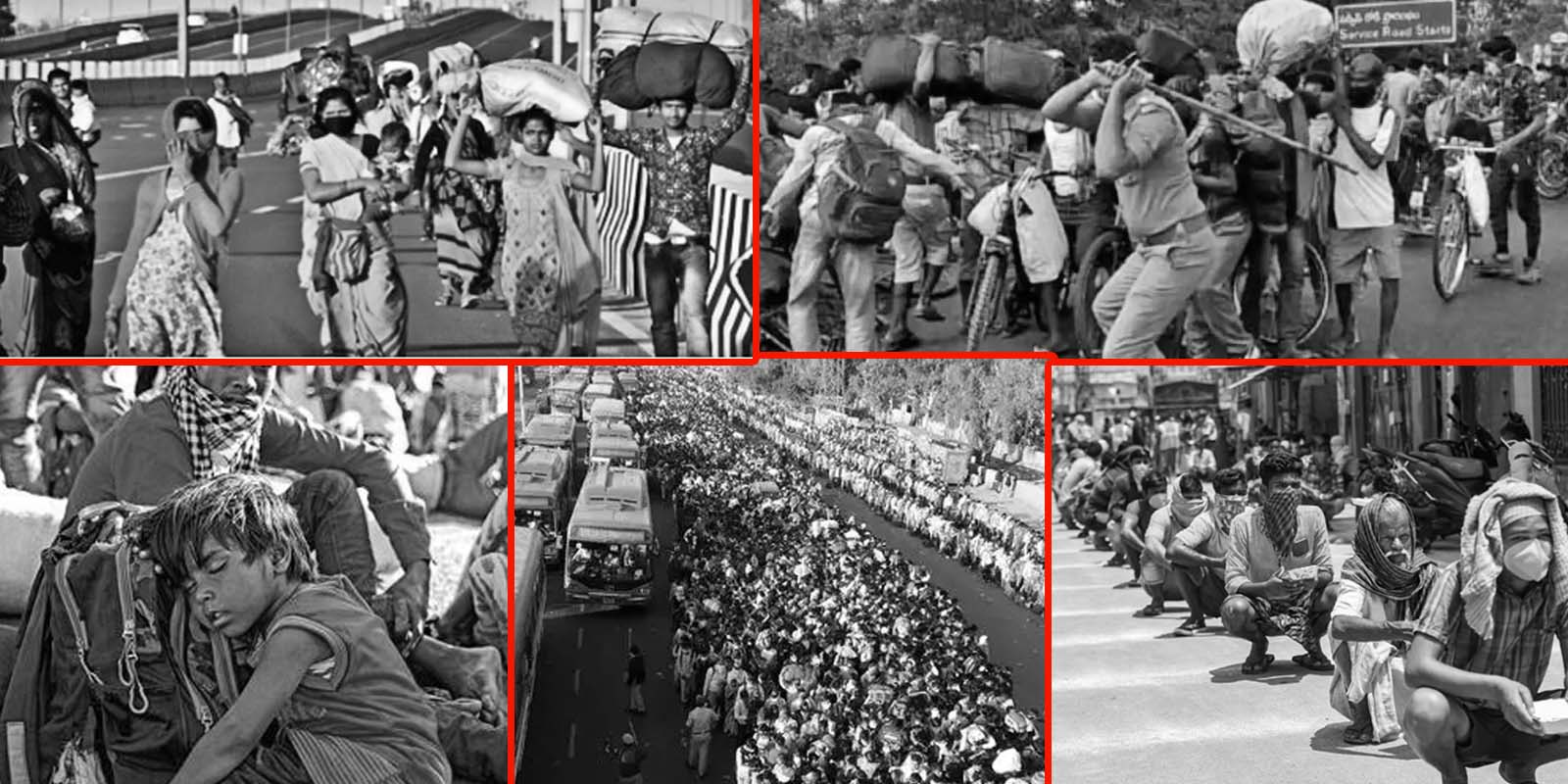
Shimla--The real competency test for the Nation isn’t ordering lock-down – it’s coming out of it. Some of the questions facing us amid these crises are; How civilized we are as a nation during this time of scarcity and fear? Are we helping the poor and needy or are we allowing them to be disproportionately impacted by this lockdown? Do we have adequate shelter homes for Migrant workers? Do we have enough food and transportation arrangement for them? Did our Government and administration use this expensive time of lockdown to prepare to “test and track” infected individuals, make provision for providing masks to the population, build isolation facilities, and other required medical facilities? These questions are haunting our nation in the present and will haunt us in the future too.
In this series of articles, we are discussing the role that judiciary has played during the time of this crisis. We have already gone through three orders of the Patna High Court.
Also Read: Response of Judiciary to India’s Migrant Crisis During Lockdown Part-I
Last month Madras High Court issued an order laced with emotion, something unusual for the courts. In a habeas corpus petition asking the government to produce 400 Tamil workers stuck in Maharashtra, a bench observed:
“One cannot control his/her tears after seeing the pathetic condition of migrant labourers shown in the media for the past one month. It is nothing but a human tragedy.
It is very unfortunate that those persons were neglected by all the authorities. The heart breaking stories are reported in the print as well as visual media that millions of workers were compelled to start walking to their native States with their little children carrying all their belongings over their head, surviving on the food provided by good Samaritans, as no steps were taken by the Governments to help those migrant workers.
..it is a pity to see the migrant labourers walking for days together to reach their native places and in the process, some of them had lost their lives due to accidents. The Government authorities of all the States should have extended their human services to those migrant labourers.”
In another case, the Andhra Pradesh High Court cited disturbing news reports to order the state government to take specific measures under seven different heads, including medical, transportation and food.
The court began the order thus:
“This court notices that the labour who have left their ancestral homes and villages and moved to the cities for better livelihood to ensure that all of us live in comfort are on the roads today.
If at this stage this court does not react and pass these orders, this court would be failing in its role as a protector and alleviator of suffering.”
The Karnataka High Court has directed the governments to decide on paying the transportation cost of workers going back to their villages and towns. It reminded the governments of the huge contribution the workers have made to the country’s development, insisting that the executive should come forward to help them at a time when they have lost their livelihoods.
TheDelhi High Court has also taken up this issue and has sought the response of the governments. Further, it has asked the government to take “all care” for repatriation of migrant workers, as and when they approach their concerned nodal officer and has directed
“So far as restoration of helpline number is concerned, we direct the Delhi government to ensure the uninterrupted working of their helpline number so that people may approach the Nodal Officers through the helpline numbers. The very purpose of helpline number is to help the people and, therefore, the same must be functional.”
The Gujrat High Court also took up the matter Suo Moto and observed:
“Everyday hundreds of migrant workers with children are seen in different parts of the state, more particularly on the highways. Their condition is pathetic. They are living in the most inhumane and horrendous conditions. As we have observed earlier, although all necessary steps are being taken by the state government, more modalities need to be worked out at the earliest to ease the suffering of the people at large.”
In another case the Uttrakhand High Court took notice of the Report filed by District Legal Services Authorities which stated that;
“…quarantine centers which have been established at Village level are the worst of the lot.”
No facilities in these centers to provide food to the inmates. Food is being provided by the villagers and the family members of the inmates.
In many of these quarantine centers where the inmates are more than 20 to 30, there are only 1 or 2 toilets. What is most shocking is that the hygienic condition of these toilets is also extremely poor.
Apart from this, many of the toilets which are in urban areas are in bad conditions, as these toilets are not being cleaned regularly.”
The Court directed the Secretary, Health and the Secretary, Disaster Management, Government of Uttarakhand, to pass appropriate orders to District Magistrates so that their Order dated 4th May 2020 be implemented in letter and spirit and so that there are enough of funds with the “Gram Sabhas” to manage and run these quarantine centres. Secretary, Health, Government of Uttarakhand and the concerned District Magistrate were directed to remove all the shortcomings in these quarantine centres.
Court also observed,
What is absolutely necessary is to maintain the quarantine centers at village level, for which proper funds be provided to the “Gram Sabhas”, as contained in the Government Order dated 04.05.2020, for which there has to be a proper coordination between District Magistrates and the panchayat level officers and the elected representatives of the people.
Matter be listed on 17th June 2020. [Sachdanand Dabral v. UOI, WP (PIL) No. 58 of 2020].
In another case, the Allahabad High Court ordered the State Government to ensure that persons who have completed their quarantine period be released from the Quarantine Centres provided they have tested negative. The Order stated;
‘Persons, who have completed their quarantine period and have tested negative can not be further detained in the Quarantine Centers against their wishes. It would be in violation of personal liberty under Article 221 of the Constitution of India.’
The Bench also directed the Chief Secretary, State of Uttar Pradesh to set up a three members committee in every district to ensure smoother, greater and more effective functioning of the Quarantine Centers.
(The post was first published in https://lawumbrella.wordpress.com/ )
(To Be Continued)
HW Community
Video of Child Trying to Wake up His Dead Mother- Court Takes Cognizance
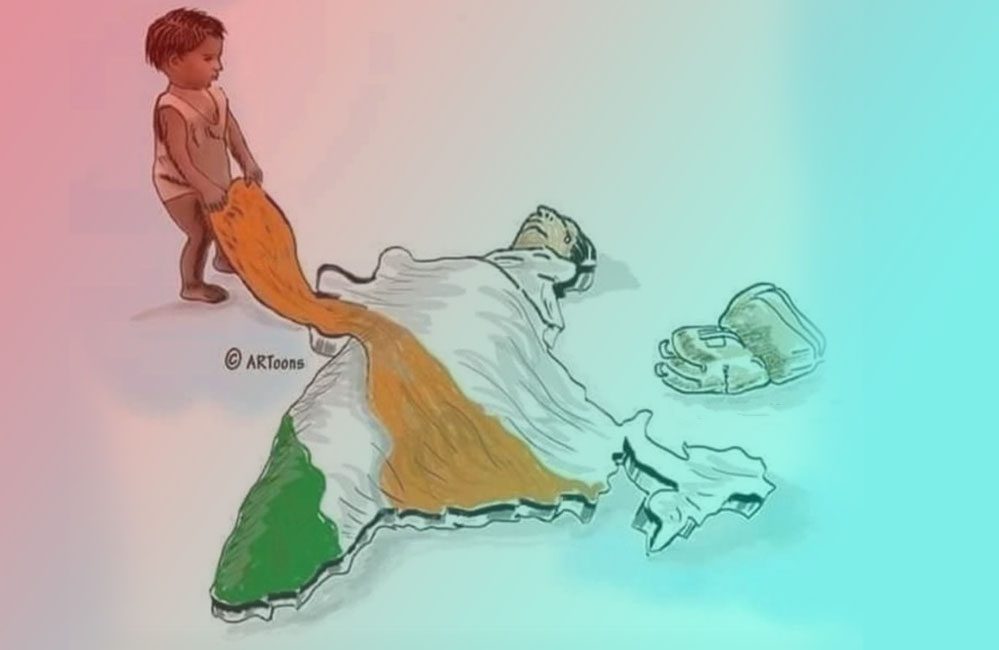
Shimla-A Division Bench headed by Sanjay Karol. CJ., had taken suo motu cognizance of a news article of the newspaper Times of India dated 28th May 2020 wherein an item reads as “Video of a child trying to wake up his dead mother goes viral.”
Justice S. Kumar invited the attention of Chief Justice of the Court to a newspaper article wherein the portion talks about a “Video of Child trying to wake up his dead mother goes viral.”
A video of a toddler trying to wake up his dead mother lying on a railway platform has gone viral on social media. The child can be seen removing a shawl covering his mother’s body.
The Bench stated if the items as stated in the news report are correct of which it has no reason to disbelieve. This warrants intervention in exercise of jurisdiction under Article 226 of the Constitution of India, taking suo motu cognizance of the said news item.
Bench laid the following issues for immediate attention:
-
Whether the postmortem of the dead-body was conducted? If yes, what was the cause of death? Did the lady actually die of hunger?
-
Was she travelling alone with her sibling ? If not, who all were her companions,
-
What action stands taken by the law enforcing agencies,
-
Were the relatives of the deceased informed of the incident,
-
Were the last rights of the deceased performed as per the custom, tradition and the instructions issued by the government, and
-
Above all who is now taking care of the children/sibling(s), who unfortunately lost their mother in these times of distress.
Bench before giving any order directed Additional Advocate General-IX to obtain instructions on the above issues.
The AG stated that the news report is partially incorrect. Deceased was mentally unstable and had died a natural death during the course of her journey. District Administration facilitated by providing an Ambulance up to the place of destination. The orphaned child is in safe custody and guardianship of the sister of the deceased.
Further AG stated that even though the child is safe and secure, yet he shall personally pursue the matter with the authorities who would again reach out to the family, enquiring any need of assistance.
The matter was again taken up on 3rd June and the following order has been passed:
Our concern, as indicated in earlier order dated 28th May, 2020, have not been adverted to and as such, as prayed for, we grant three days’ time to the respondents to file an affidavit. Let needful be done on the affidavit of the Additional Chief Secretary, Department of Home, Government of Bihar.
The matter is now Listed for 8th of June, 2020.
(The post was first published in https://lawumbrella.wordpress.com/ )
HW Community
Academic Merit of “Doctors” Must Reckon Services Rendered for ‘Common Good’
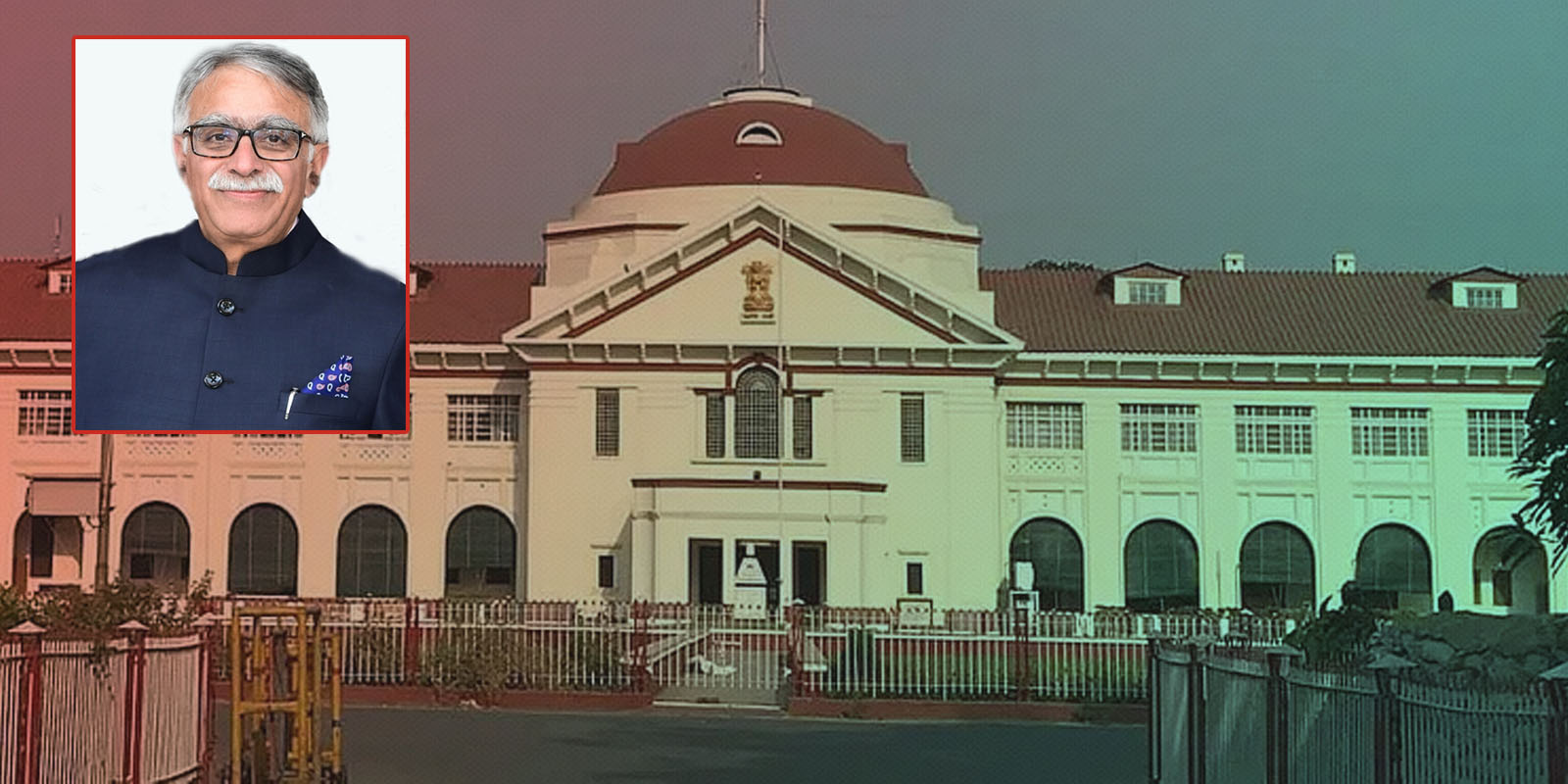
Shimla-For securing ‘Right to Health’ and medical facilities by ensuring an adequate number of doctors in the rural areas, an important order has been passed by the ‘Patna High Court’ in the current situation of a Pandemic. The Order is in line with judiciary’s endeavour to fulfil its obligation towards securing social justice for the poor and especially for the people living in rural parts of our country.
The Court has essentially said that to determine the academic merit of (Doctors) candidates, merely securing high marks in NEET is not enough. The academic merit of the candidate must also reckon the “services rendered for the common or public good.” Having served in rural and difficult areas of the State for one year or above, the incumbent having sacrificed his career by rendering services for providing healthcare facilities in rural areas deserves incentive marks.
A Division Bench comprising of Chief Justice Sanjay Karol ordered,
“The Chief Secretary, Government of Bihar shall, with the normalization of the of the current Pandemic COVID-19, ensure that vacancies in the rural/ remote/ difficult areas are filled up to the maximum extent possible, either by transfer or expediting the process of recruitment.”
The court took notice of the fact that in the state out of 11645 sanctioned posts of doctors, 8768 were lying vacant, out of which 5674 fell in the difficult/remote/rural areas. And despite the same, Government chose to not grant incentive of weightage in marks in NEET test, to the doctors posted in these areas. It went on to observe that the State Government is “neglecting” rural areas by taking these measures and catering to ‘vested interests’ by only posting the majority of the doctors in urban areas.
The Court directed the concerned authorities to redraw the merit list strictly by the law which in the instant case were ‘two notifications’ issued by the State. The said notifications granted benefit for service in rural areas but was not being implemented.
In the stand taken in court, the State had justified its decision of not granting the above benefit stating that “the merit would stand compromised and would adversely affect the in-service doctors posted at urban areas.”
However, the Division Bench disagreed, stating;
“Can a Welfare State even adopt such a stand more so in the absence of any plea or material to indicate absence of doctors or higher percentage of vacancy of the posts in the urban areas?”..
…”Incentivizing posting of doctors/medical staff in the specified areas can only be in public interest and for public good and not the other way round. Under the Constitution all power must be exercised to subserve public interest, for public good and for a public cause. If only such benefits are accorded would the Doctors voluntary opt to serve the poor, the needy, the deprived and the marginalized ones living in the remotest corner of the State.”
The Division Bench opined that if the State Government has found that circumstances warranted the need for such incentives, “then the State could not and should not deny such incentive.”
“Undoubtedly discretion of according benefits, vests with the Government, but then, its exercise has to be based on some rational and not in an arbitrary and capricious manner. There is no logic of depriving the doctors posted in the rural areas of such benefits.”
The Court went on to pull up the Bihar Government for having admitted, through notifications issued in 2013 and 2014, that there were difficult/ remote areas in need of doctors on the one hand while denying to provide incentives to fill in these vacancies on the other.
“Strangely, if not collusively, it has taken a specious plea of interpreting such a Notification limited only to the identification of areas in terms of the Regulation and not taking a decision conferring benefits in terms thereof. Such a stand is both immoral and illegal.”
“The power to grant incentive is discretionary, but then having done so, State cannot be allowed to turn around and contend to the contrary, notwithstanding as to whether such benefit was neither claimed nor conferred upon any individual. Mere non-enforcement of a right by an individual or its non-conferment upon by the State would also not be a reason for the State to adopt such a dubious plea.”
The Court proceeded to dismiss the State’s appeals and issued the following directions:
- All candidates who have participated in the selection process, including the writ petitioners and are otherwise eligible, would be entitled to the benefit of 2013 and 2014 Notifications issued by the Government of Bihar;
- Provision in the prospectus to the contrary is held to be illegal and void
- The Bihar Combined Entrance Competitive Examination Board shall redraw the merit list strictly in accordance with law by granting benefit of 2013 and 2014 Notifications after accounting for the certificates/proof of eligibility, for grant of incentives in terms of Regulation 9(IV) issued by the MCI.


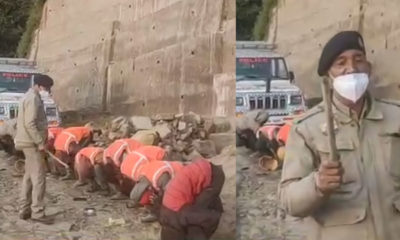

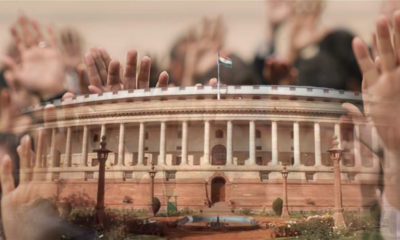

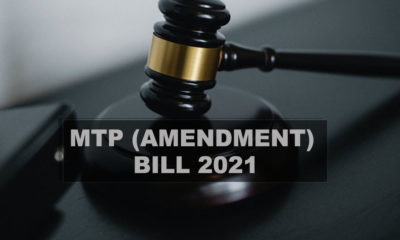







 Home Decor Ideas 2020
Home Decor Ideas 2020